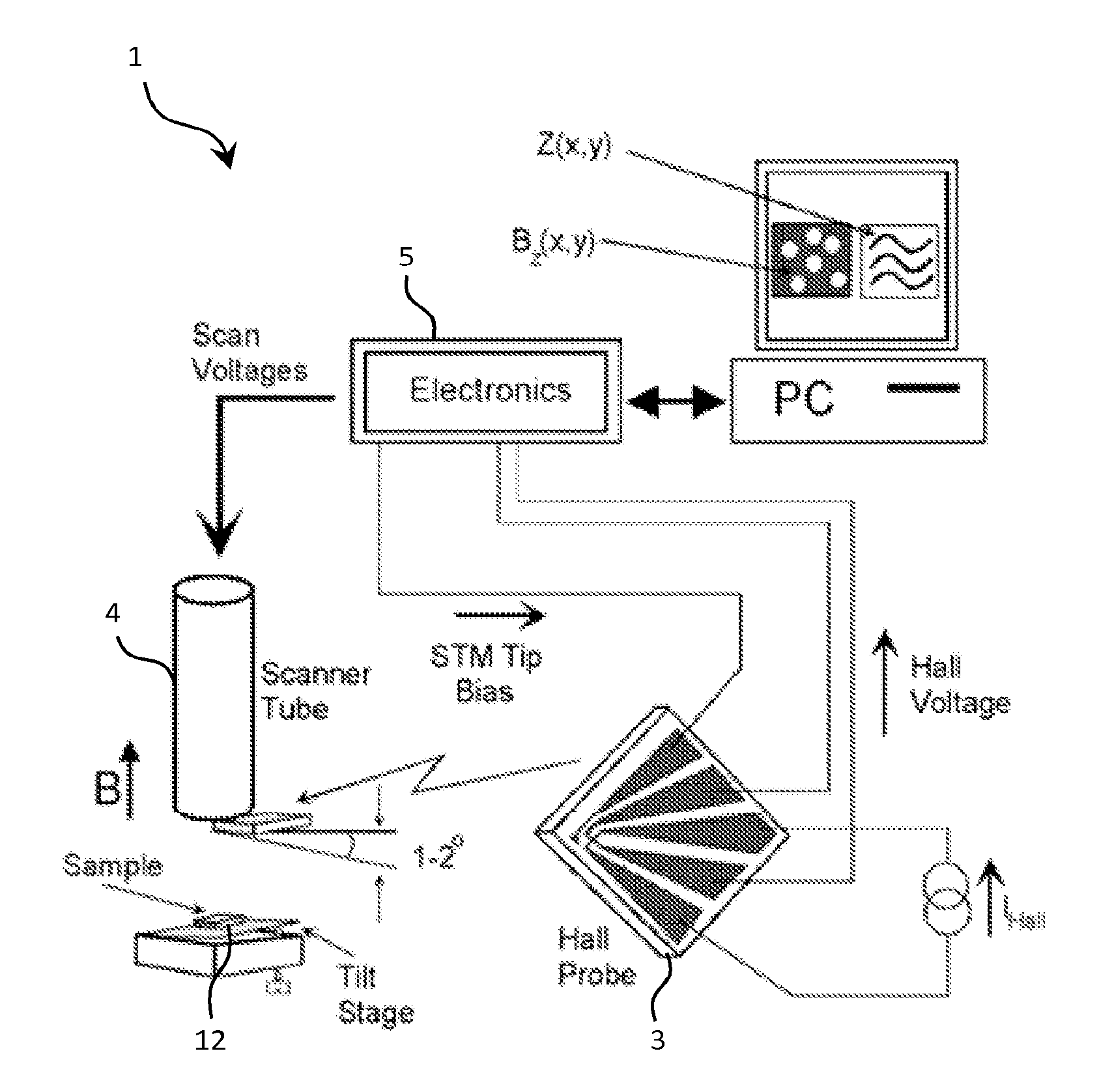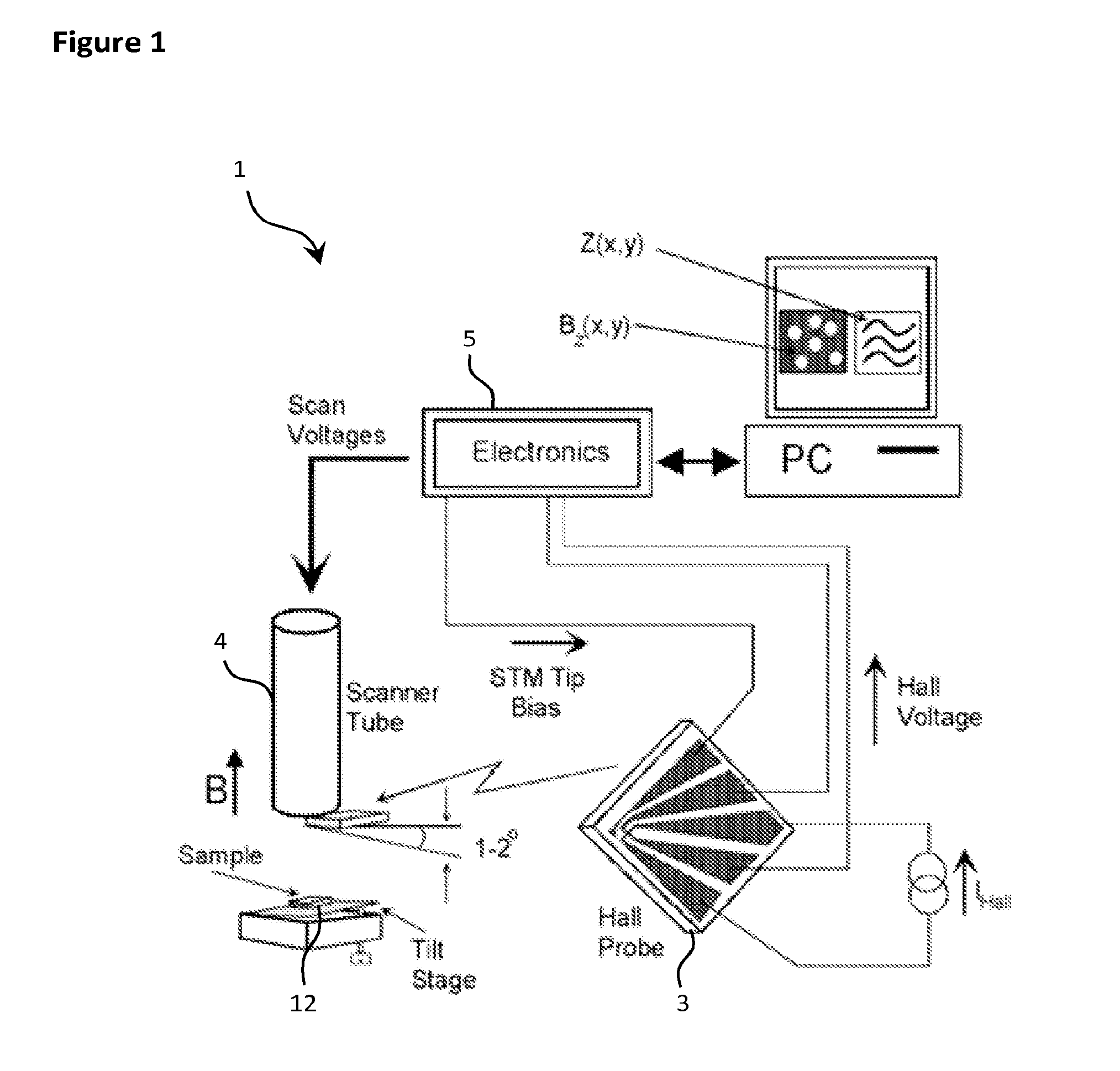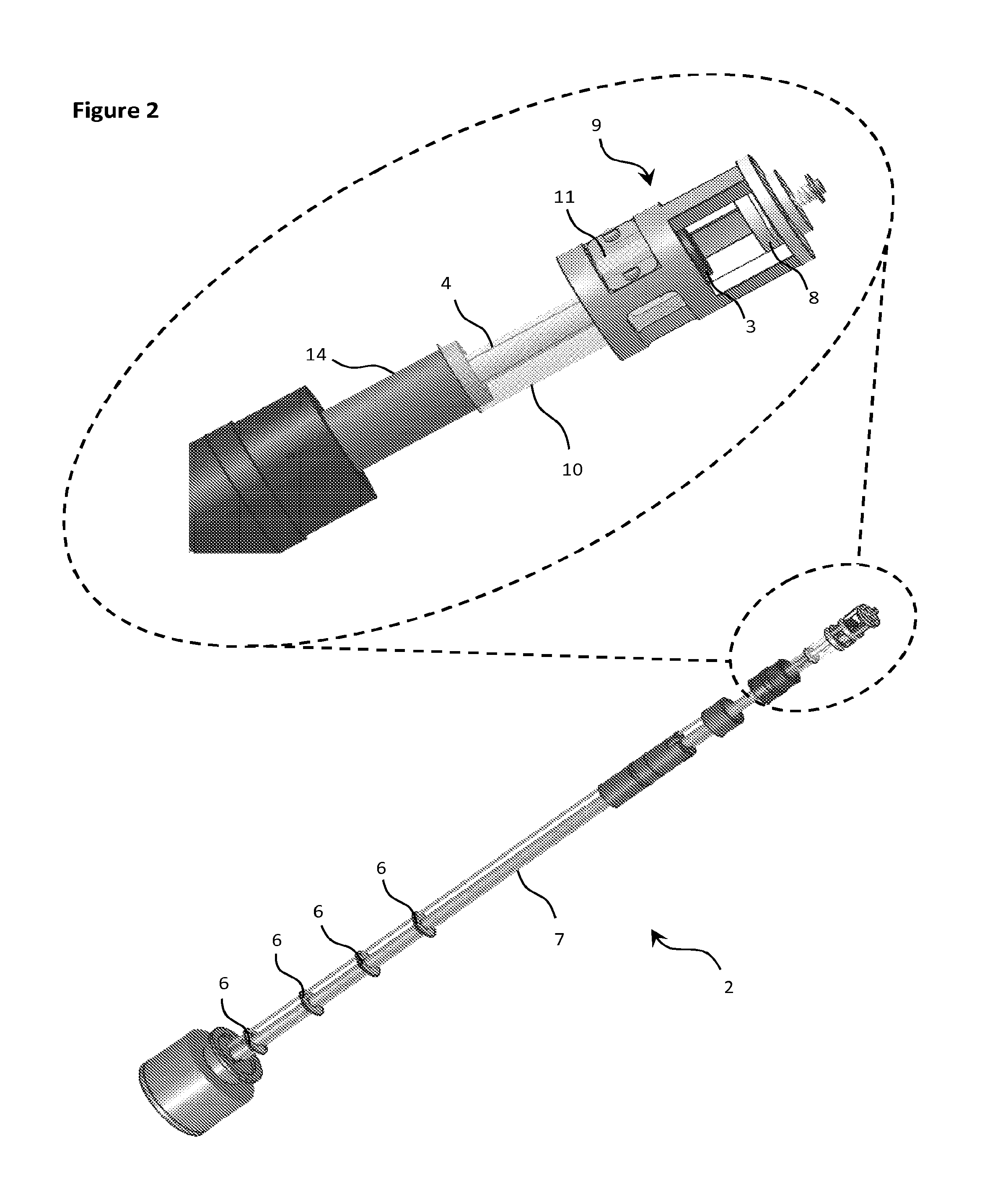Method to measure 3 component of the magnetic field vector at nanometer resolution using scanning hall probe microscopy
a scanning hall probe and magnetic field technology, applied in the field of measuring the 3 component of the magnetic field vector at nanometer resolution, can solve the problems of difficult assembling of parts, the integration of ohmic contacts, and the inability of the electron to overcome the potential barrier, and achieve high spatial resolution
- Summary
- Abstract
- Description
- Claims
- Application Information
AI Technical Summary
Benefits of technology
Problems solved by technology
Method used
Image
Examples
Embodiment Construction
[0040]The scanning hall probe microscope (SHPM) (1) includes; a microscope body (2), a hall probe (3), an approach mechanism, a scanner (4) and control electronics (5).
[0041]The microscope body (2) is an assembly housing all the mechanical parts, moving or stationary, which forms the microscope (1). The microscope body (2) preferably has a compact form in order to fit in to cryostat systems for low temperature applications. Moreover it includes radiation baffles (6), extension tube (7), sample holder (8), slider puck (9), slider tube (10), leaf spring (11) and hollow cylindrical shield. Radiation baffles (6) decrease the effect of the radiation from high temperature and help preserve the cryogen. The extension tube (7) is designed to bring the scanner head to the magnet center of the cryostat. It also houses the cables used for carrying signals. The sample (12) is placed on the sample holder (8) facing towards the sensor, which is mechanically attached to the slider puck (9). The pu...
PUM
 Login to View More
Login to View More Abstract
Description
Claims
Application Information
 Login to View More
Login to View More - R&D
- Intellectual Property
- Life Sciences
- Materials
- Tech Scout
- Unparalleled Data Quality
- Higher Quality Content
- 60% Fewer Hallucinations
Browse by: Latest US Patents, China's latest patents, Technical Efficacy Thesaurus, Application Domain, Technology Topic, Popular Technical Reports.
© 2025 PatSnap. All rights reserved.Legal|Privacy policy|Modern Slavery Act Transparency Statement|Sitemap|About US| Contact US: help@patsnap.com



